
"Paimana Bideh". Two words. What does it bring to your mind... ??? No? Alien words?? C'mon... think, and think some more. Still no clue... ??
If I say... they bring with them the strains of the rubab and a beautiful, enchanting song with lilting lyrics. Quite akin to that of our folk music from Kashmir. They bring with them... lyrics that are really touching and stunning. Will that interest you... ??? If it does... read on. If it does not... well, all I can say is... don't miss this song. It'll be your loss, if you do. Entirely.
The lyrics have an enchanting quality. The words are like strains of music that can be heard from a distance only if one keeps still. And when one does keep still one can hear it well enough. The song is in the Pushto/dari language. It is also probably inspired by a composition of the great Persian polymath, Omar Khayyám. A very melodious song, indeed. One that will transport you to a different space and a different time.
"Paimana" has persian lyrics. The song is rendered by Haniya Aslam, and her cousin Zeb (Zebunissa) Bangash - Pakistan's first all-female music band. A female duo who have evolved from two college kids experimenting with music as a hobby to artists who have created one of the most anticipated albums of 2007. Zeb and Haniya's (pronounced as "Zay-eb and Haa-nee-ya") early work; a song called "Chup!" (Hush!), brought them fast recognition and now the confidence to play a hand at their and our music industry. "Chup!" has since been re-done; this hugely catchy song, now with clever production, will probably be the biggest hit from this album.
Both are ethnic Bangash Pashtuns... from Kohat, North-West Frontier Province, a fact that did not register in India though it should have... because one of our most famous musicians is also a Bangash: the sarod maestro Ustad Amjad Ali Khan.
A part of the girls' appeal - is 'coz their music blends Western and Eastern influences seamlessly. "Paimana", a Pashtun ballad about love, rendered with a blues influence, perhaps best illustrates this. The music is soft with a lot of blues influence and some eclectic pop flavour. One of the most beautiful and romantic songs by the duo!
The song is so mesmerizing and intoxicating, it is so wonderful to listen to... when it is quiet all around. The words start to melt in your mind and blend with your blood. Very romantic poetry. Perfect for a quiet weekend! So... just lean back, close your eyes, think of that 'special someone'... and let this song enchant you. Completely! It is simply magical!
Here is an amazing video. It is a must watch! You can listen to this song (with the lyrics and translation) in the following link: HERE.
A 'live' performance... by the duo (at the Coke Studio sessions), can be watched:
HERE (with the strains of the rubab... in the background). The singer - Zeb - is apparently closer in accent to Kabuli Persian than Tehrani Persian.
Zeb and Haniya's sound is urbane, very polished and orchestrated. Their writing is easy and comes from a comfort with the Hindustani language. There is also a unique Pushto and Darri (Afghani Farsi) experience to be had. The group's songs are mostly in Urdu. They had visited India recently... and performed and mesmerized all. So, a lot of us had the opportunity to listen to them... live.
Zeb and Haniya's brand of folksy music draws on that Pashtun heritage and can easily fit into the region's longstanding Sufic tradition. Their songs can be playful and sensual, addressing the themes of love and longing "to God through the conceit of a lover," says Bangash. Their music uses guitar, drums and trumpets, as well as more exotic stringed instruments like the sarod, to express "Western and Eastern melodies arranged for a global audience," according to Bangash. "The (Pashtun) people love to dance and have a good time," says Bangash. "The superimposition of extremist views has not been able to snuff out centuries of musical tradition. We've had Pashtuns come up to us and thank us for preserving our musical traditions," says Bangash. I just want to say... more power to you, girls!
Much to their surprise, the two have been widely accepted by Pakistan's male-dominated music industry - except by a few, of course. "Some of them think we're not serious enough and that 'this thing' is going to be abandoned after we get married," says Bangash. A few months ago, Zeb and Haniya were asked to perform at a private function in Lahore with exotic dancers. They refused. "We're not going to cheapen the music," says Bangash. Their family remains supportive despite the societal pressures. "People are so caught up in what is and isn't respectable that they forget to live," says Bangash. "You can't kill music; it's in every Pashtun's blood." And soon their album will be played on every Pakistani radio station. Hopefully.
There's a quote, "Music knows no boundaries, knows no races... it is possible for music to bring peace around the world." How do you answer those who would say this is being naive or is simply wishful thinking? I would say it's also naive to think otherwise. That is a strong statement and it's not going to bring peace ultimately... but it could start to crack down the barriers, which is a step toward peace. Music... is the cause for celebration in some of the most desolate places on earth - where disease, poverty, and conflict are commonplace. There is celebration in music and people forgot in that moment whatever things were bringing them down. I would even add that... through music we can gain enlightenment. I'm not a musician myself but in witnessing/listening to all sorts of music, I believe... it can be a tool for meditation. If you do get into the music and express yourself with your music, I think it can give you some enlightenment and a more pure understanding of everything. Are the harbingers of 'doom-and-gloom' listening... ???
Zeb is pitch perfect with refined nuances and inflexions to her singing. Haniya on the other hand, sings from the gut with a feel for the music, rather like Janis Joplin. Great voices both, but with two different uses and the girls obviously know that. Zeb has been singing since age eight and has been training as a vocalist since 1998 with acclaimed Ustad Mubarak Ali Khan (link - 'Ranjha Ranjha Kardi' and other songs). Her fellow musician and first cousin, Haniya, is a guitarist, vocalist and songwriter.
On being asked... how far back do they go together and how did the band form? "I think I met her when I was three months old," says Haniya seriously with a twinkle in her eyes. Actually our mothers are sisters, so we are first cousins. And we were born exactly a month and three weeks apart."
A wonderful, mesmerizing song... from a beautiful land. Of scenic beauty, beautiful people, green meadows, rolling hills... painted in lovely shades of ochre and beige in winter. A land synonymous with valour, with imposing rugged mountains ringing the horizon, clear streams, exquisite arts, crafts and architecture. The land where our forefathers wrote the "Rig Veda". A land where History is alive. A land where the hills were once alive with music, arts, crafts, dancing, and so much more.
If you want an example... of the cruel joke that the West in now playing on the people there, and on us (by default). Here it is: after destroying Afghanistan... for a few years now... the 'cowboys' and their cronies have been pounding the Swat valley. A place in the North West Frontier Province of Pakistan... the charming Swat, a peaceful and fascinating tract in the lap of vegetative sky-high mountains, with eternal snow on their lofty crests, is an everlasting source of attraction for the visitors/tourists. The Swat River is mentioned in the Rig Veda 8.19.37 as the Suvastu river. The first historical mention of the valley goes back to a hymn of the Rigveda (Stein, 1929:viii). Swat has been inhabited for over two thousand years and was known in ancient times as the Udyana. Cut to recent times. Periodically... the 'respected' magazines, journals, newspapers, electronic media, etc... in the US and other prominent Western countries, carry reports... that 'so-and-so' has been sighted there.
This place is home to a large number of Shias (a sect of Islam), Hindus, Buddhists and Sikhs. There is a place here... which is referred to as the "Ramji's throne". Through the centuries... indeed millenniums this place has existed. Archaeological treasures, including centuries-old Buddha statues - the Bamiyan Buddhas - (link) have been destroyed.
Now, the 'cowboys' (and their cronies) are pounding this and much else via the 'Drone'. The US Navy's Electronic Attack Squadron 134 is nicknamed the 'Garudas'. Isn't it ironical... ??? The name 'Gandhara' first occurs in the Rigveda which is usually identified with the region. 'Drone' attacking Kandahar (ancient Gandhara... Gandhari's birth place) and Shri Ramji's throne... ??? I ask you!
(More later...)
Note: Some info gathered courtesy: Wikipedia and zebandhaniya.com.
Alternative link... with the lyrics and translation of "Paimona" is: HERE.
A live performance by them is available on an excellent website called cokestudio.com.pk, though. This song is also spelt/referred to as 'Paimana Bitte'.
'Dari' comes from the word 'Darbari'... meaning 'Courtly'. It is short for Farsi-e-Dari... i.e., 'Courtly Persian'.
According to an Afghan musician... this song is played in a rhythm called Mogholi 7/8i, a typical Afghan rhythm. And to this song the rhythm should be a bit faster, you can listen to the original song and you will notice the tempo of the rhythm. Mogholi is one of the easiest 'taals' in Afghan music and all new players who learn to play the tabla, learn this 'taal' first. Another link (HERE).
Photograph:
A pic of the rubab/robab/rebab. Known as "the lion of instruments", it is one of the two national instruments of Afghanistan (together with the Zerbaghali - the single headed clay goblet drum [link]). Elsewhere it is known as the 'Kabuli rebab'. It is the ancestor of the north Indian sarod though - unlike the sarod - it is a fretted instrument. (Pic courtesy: Wikipedia).

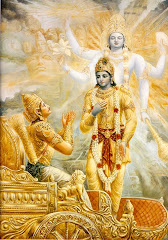



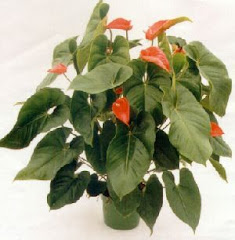


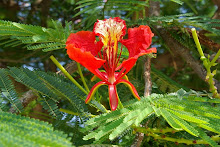

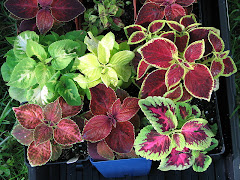
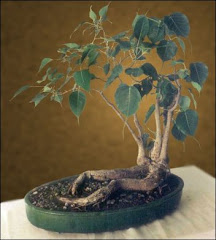


Truly informative ....the video specially the composition is lovely.Many such gems lie hidden in the annals of Hind.
ReplyDeletewow!! u have knowledge in every field!
ReplyDeletehy nice.... wat is the limit of subjects in your minds??? :D
ReplyDeleteu write about everything...:D
Awsome song..!!
ReplyDelete@ Sunil: I agree, Sunilji.
ReplyDeleteThis part of the world has such numerous treasures... all very well hidden. Ignored and neglected.
The head-banging "pop" music/songs are considered "priceless"... yet these "gems" are considered "valueless". What a pity!
PS: What do you think... of the cruel joke that the West in now playing on the people there, and on us (by default)... ???
@ Reema: No! No! I am just a humble 'Jack... err Jill of all' *blushing deeply*
ReplyDeletePS: Why Jill... ??? I am all for 'equal opportunity'... you see ;)
btw... how did you like the music/song... ???
@ Sid: *blushing even more deeply*
ReplyDeleteAs I have mentioned to Reema before you... I'm just a humble 'Jack... err Jill of all' :)
Hope you liked "Paimana Bideh"...
@ Puneet: Yes! Truly awesome...
ReplyDeleteVery impressed with the song.
ReplyDeleteYou seem to pick up some of the most interesting subjects.
Where do you get these ideas and subjects from?
Damn! This is fabulous. How much GB does your brain has?? I'm truly amazed.
ReplyDeleteThe song is really soulful and worth listening over and over again. Don't know the lyrics yet, but I'm on my way to find out (courtesy: link provided by you) :)
Eagerly waiting for the next part.
And with all of my heart, thank you so very much. :)
@ BK Chowla: Thank you Chowlaji... for your kind words :)
ReplyDeleteI just write about whatever interest me... and I am more than glad that my readers find them interesting too :)
@ Karthik: Thanks a bunch Karthik... for those encouraging words. Appreciate it! :)
ReplyDeleteI agree with you, completely. The song is really soulful and worth listening over and over again.
Glad you liked the song... and the 2nd part will be put up very soon :)
Your posts are always a treasure trove of knowledge!! :)
ReplyDeleteI liked the melodious music while reading interesting words. :)
ReplyDeleteBest wishes.
Hmm, regarding the cruel practical joke of uncle Sam and cronies I would like to quote Margaret Cavendish who in many ways was a revolutionary writer who dared to think ahead of her times .She very rightly said "A rude nature is worse than a brute nature by so much more as man is better than a beast. those who are of civil natures and genteel temperament are as much nearer to heavenly creatures as those that are rude and cruel are to devils".I am not sure in which category to classify them.They do all this cleverly and deliberately .
ReplyDeleteImpressive!
ReplyDeleteInteresting!!
Informative!!! :)
Very informative!
ReplyDeleteI was wondering, have you read "The Music Room", by Namita Devidayal? If you haven't, you must..Its one of the most beautiful books on Indian music, almost as informative as your posts! If you have, I would love to know what you thought about it. I was absolutely enthralled by it. but your opinions seem like something to value! :)
@ Tangerine: Thanks Tang! :)
ReplyDeleteHope you enjoyed the song...
@ Chandrika: Thanks for stopping by my blog. Glad you liked the post and enjoyed the song :)
ReplyDelete@ Sunil: You are very right in your assessment, Sunilji.
ReplyDeleteIt is a pity and a sad state of affairs... that we do nothing, and can do nothing... about it.
@ Shilpa: Thanks girl! :)
ReplyDelete@ Preeti: No, I haven't read the book. Thanks for suggesting it, though.
ReplyDeleteIt is now on my "must-read" list.
PS: Thanks for your kind words :)
I loved the voice of the lady, but the starting music was a bit jarring and also on repeated hearings it can give a headache. But the melody in the middle is unbeatable!
ReplyDeleteNice post :D
Took me three days to savour it!
read ur post and i am compelled to hear that song. Yet to find time to hear it. Nice detailed post with quite an informative content.. as usual !!
ReplyDelete@ Pawan: Glad to know... you too were enchanted by this song.
ReplyDeleteWell, try and download the song... from the link I have provided in the post. That has the rubab playing in the background. The effect is very soothing and mesmerizing.
@ subu.ps: Yes, you must listen to the song. The download link is given as well.
ReplyDeleteThe video is a must-watch!
Hey I just downloaded the song and listened to it!!!!
ReplyDeleteIt is truly a wonderful piece of music.. THanks for sharing this information with us al!!!
@ Niharika: Thanks girl! :)
ReplyDeleteP.S. Offlate, I'm unable to view your blog. 'coz of the font size. Please restore it to the way it was before you made the changes...
I got introduced to the song by a friend... It's stuck in my ear since then... Amazing. Thanks for the research on it. Good info.
ReplyDelete@ NesQuarX: Thanks and welcome to my blog. I agree.. "Paimana Bideh" is a gem of a track :)
ReplyDeleteHi Everyone,
ReplyDeleteThis song is Dara not Persian..:)
There is a big difference b/w Dari and Persian..Dari is from Afghanistan...the song is Afghani and its been composed by a great composer and songwriter Taranasaaz..He is from Afghanistan anf Zeb and Hania has been inspired from Afghani Music. The Original song has sung by Ahmed Wali..other than that..great work ma'm..keep it up.. just wanted to correct you...:)
@ Anon: Thanks for your inputs :) But would be great if you had left your name as well :)
ReplyDeleteIf you re-read para 3 of this post you'll find the line: "The song is in the Pushto/dari language." :)
And para 4 states that: "Paimana" has persian lyrics... :)